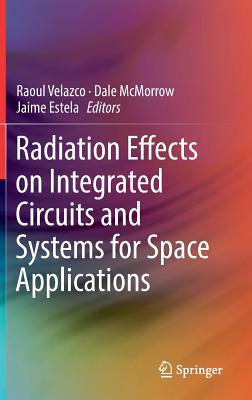相關主題
商品描述
Space applications, nuclear physics, military operations, medical imaging, and especially electronics (modern silicon processing) are obvious fields in which radiation damage can have serious consequences, i.e., degradation of MOS devices and circuits. Zeroing in on vital aspects of this broad and complex topic, Radiation Effects in Semiconductors addresses the ever-growing need for a clear understanding of radiation effects on semiconductor devices and circuits to combat potential damage it can cause.
Features a chapter authored by renowned radiation authority Lawrence T. Clark on Radiation Hardened by Design SRAM Strategies for TID and SEE Mitigation
This book analyzes the radiation problem, focusing on the most important aspects required for comprehending the degrading effects observed in semiconductor devices, circuits, and systems when they are irradiated. It explores how radiation interacts with solid materials, providing a detailed analysis of three ways this occurs: Photoelectric effect, Compton effect, and creation of electron-positron pairs. The author explains that the probability of these three effects occurring depends on the energy of the incident photon and the atomic number of the target. The book also discusses the effects that photons can have on matter—in terms of ionization effects and nuclear displacement
Aimed at post-graduate researchers, semiconductor engineers, and nuclear and space engineers with some electronics background, this carefully constructed reference explains how ionizing radiation is creating damage in semiconducting devices and circuits and systems—and how that damage can be avoided in areas such as military/space missions, nuclear applications, plasma damage, and X-ray-based techniques. It features top-notch international experts in industry and academia who address emerging detector technologies, circuit design techniques, new materials, and innovative system approaches. This book is a must-read for anyone serious about understanding radiation effects in the electronics industry.
商品描述(中文翻譯)
太空應用、核物理、軍事行動、醫學影像學,尤其是電子學(現代矽製程)是明顯受到輻射損壞可能造成嚴重後果的領域。《半導體輻射效應》專注於這個廣泛而複雜的主題的重要方面,以滿足對半導體器件和電路的輻射效應有清晰理解的不斷增長的需求,以對抗可能引起的損壞。
本書由著名輻射權威劳伦斯·T·克拉克(Lawrence T. Clark)撰寫了一章,探討了用於TID和SEE緩解的輻射硬化設計SRAM策略。
本書分析了輻射問題,重點關注了在半導體器件、電路和系統受到輻射照射時觀察到的退化效應所需的最重要方面。它探討了輻射如何與固體材料相互作用,詳細分析了三種方式:光電效應、康普頓效應和電子-正電子對的生成。作者解釋了這三種效應發生的概率取決於入射光子的能量和目標的原子序數。本書還討論了光子對物質的影響,包括電離效應和核位移。
本書針對具有一定電子學背景的研究生研究人員、半導體工程師和核能與太空工程師,詳細解釋了電離輻射如何在半導體器件、電路和系統中造成損壞,以及如何在軍事/太空任務、核應用、等離子損壞和基於X射線的技術等領域避免這種損壞。本書還邀請了國際頂尖的工業和學術界專家,探討新興的探測器技術、電路設計技術、新材料和創新的系統方法。對於任何認真了解電子行業中的輻射效應的人來說,本書是必讀之作。











